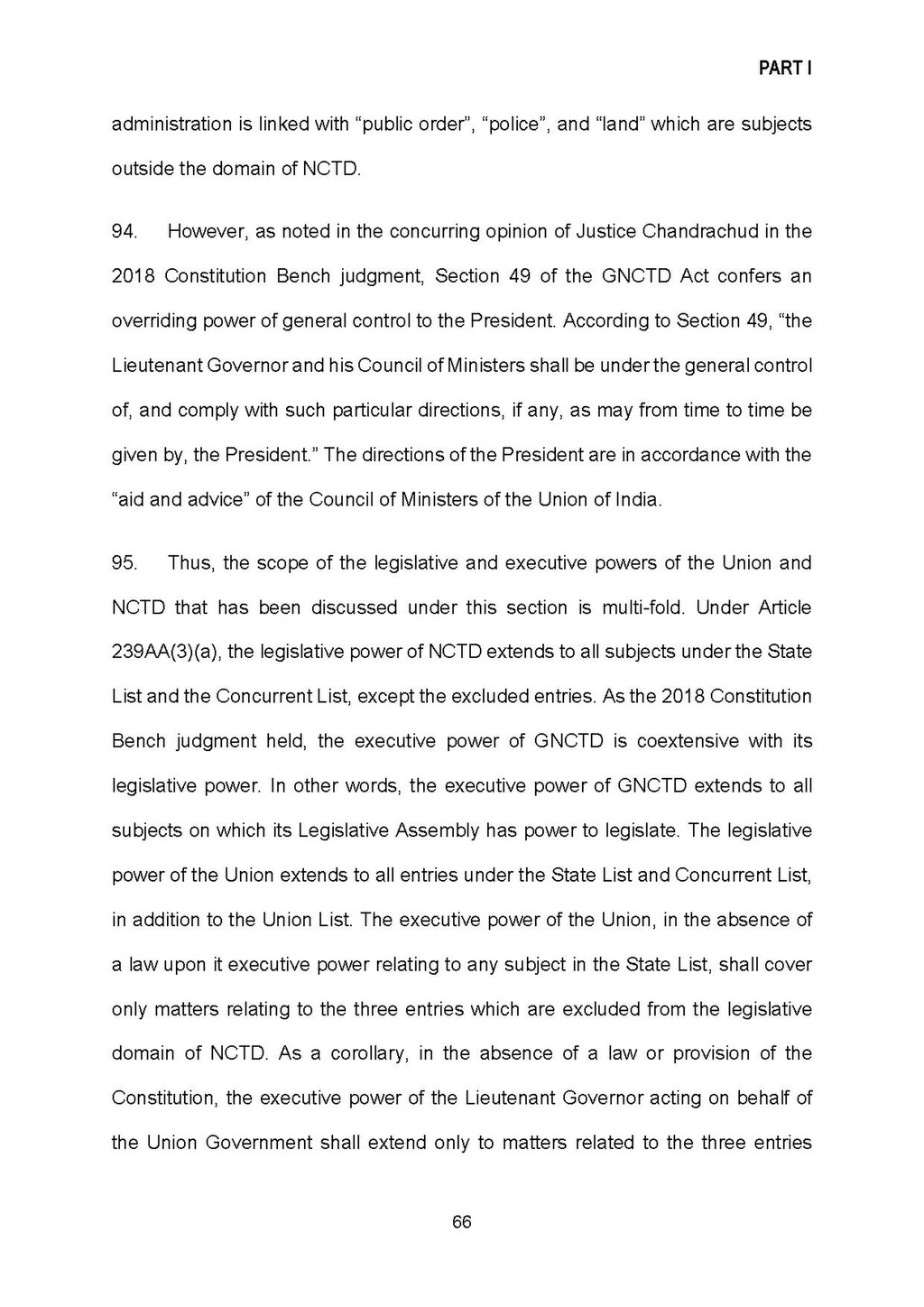administration is linked with “public order”, “police”, and “land” which are subjects outside the domain of NCTD.
94. However, as noted in the concurring opinion of Justice Chandrachud in the 2018 Constitution Bench judgment, Section 49 of the GNCTD Act confers an overriding power of general control to the President. According to Section 49, “the Lieutenant Governor and his Council of Ministers shall be under the general control of, and comply with such particular directions, if any, as may from time to time be given by, the President.” The directions of the President are in accordance with the “aid and advice” of the Council of Ministers of the Union of India.
95. Thus, the scope of the legislative and executive powers of the Union and NCTD that has been discussed under this section is multi-fold. Under Article 239AA(3)(a), the legislative power of NCTD extends to all subjects under the State List and the Concurrent List, except the excluded entries. As the 2018 Constitution Bench judgment held, the executive power of GNCTD is coextensive with its legislative power. In other words, the executive power of GNCTD extends to all subjects on which its Legislative Assembly has power to legislate. The legislative power of the Union extends to all entries under the State List and Concurrent List, in addition to the Union List. The executive power of the Union, in the absence of a law upon it executive power relating to any subject in the State List, shall cover only matters relating to the three entries which are excluded from the legislative domain of NCTD. As a corollary, in the absence of a law or provision of the Constitution, the executive power of the Lieutenant Governor acting on behalf of the Union Government shall extend only to matters related to the three entries
66
